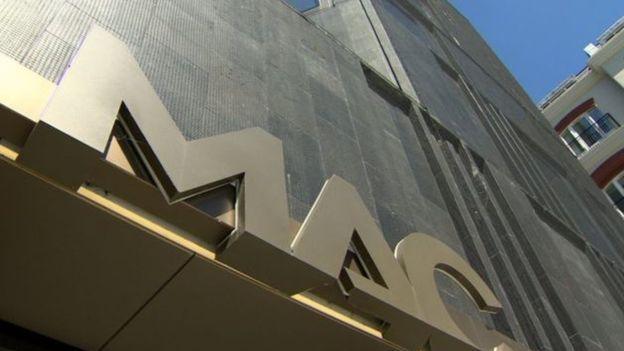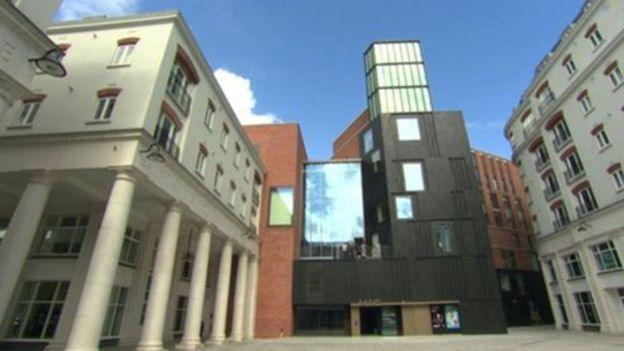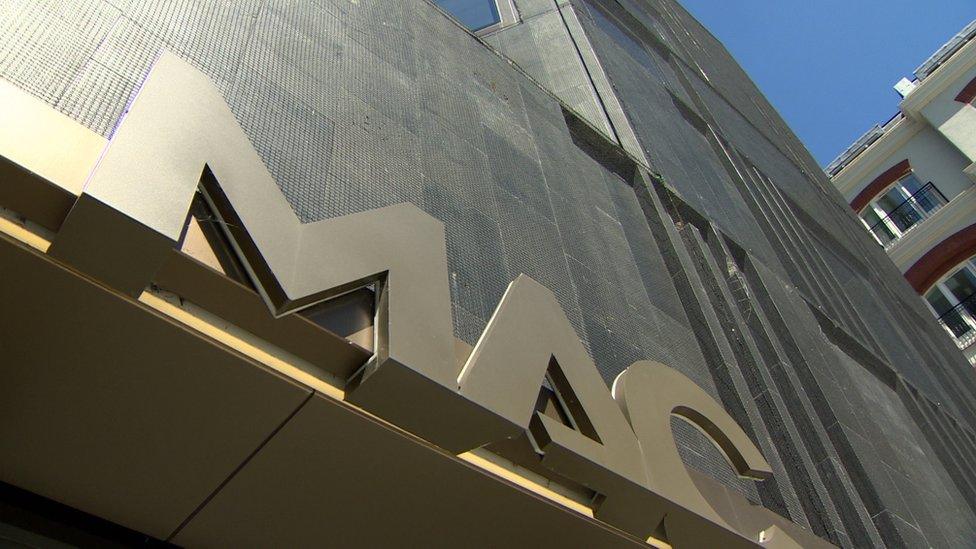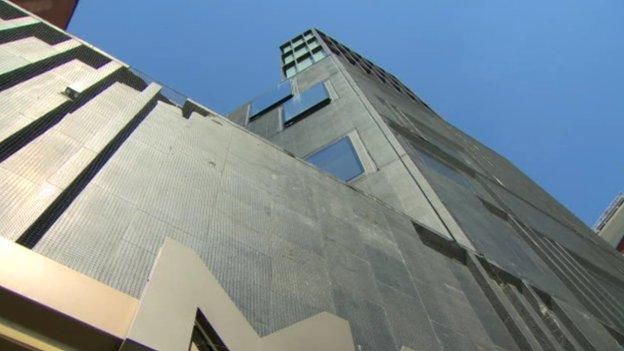Belfast's MAC theatre in emergency funding bid
- Published

A spokesperson for the MAC said that it had been operating "in a pressured funding environment"
Belfast's Metropolitan Arts Centre (MAC) needed emergency funding "to keep the doors open until the end of October", the BBC has learnt.
Belfast City Council paid £40,000 to address that issue, but the MAC has now asked for an additional £300,000 of public money before the end of March.
It also needs a further £270,000 in 2018-19.
However, the Department for Communities (DfC) has not yet approved the MAC's request in the absence of a minister.
If the extra funding is not provided the MAC may close, a councillor has warned.
'Urgent financial problem'
The MAC's financial problems are detailed in a papers presented to a council committee.
The MAC is a "high-performing organisation, exceeding targets and compares favourably when benchmarked with other (longer established) UK venues", according to the independent report provided to councillors.
But it also warned the centre's financial results "make it clear that there is an immediate and urgent financial problem".
"The MAC requires an imminent short-term funding gap to be addressed urgently to ensure the organisation's continuation," it said.

The Belfast MAC opened in 2012
The council agreed to a request from the MAC to provide £40,000 "to address immediate cash-flow issues and to keep the doors open until the end of October".
Belfast City Council provides £75,000 a year in funding to the MAC, but its main annual funder is the Arts Council of Northern Ireland (ACNI), an arms-length body of the Department for Communities (DfC).
ACNI awarded the MAC £950,000 in core funding in 2016-17 and £922,500 in 2017-18.
The MAC subsequently submitted a revised long-term business case asking for more public money this year and next year.
It is seeking an extra £25,000 from the council before the end of the 2017-18 financial year and £275,000 from DfC and ACNI.
The MAC has then asked for an additional £50,000 from the council in 2018/19 and an additional £220,000 from DfC and ACNI.
The report said the MAC had made cost reductions of £90,000 in 2017-18 and would save £55,000 in 2018-19 by cutting staff and programmes.
However, the council papers said that DfC had not yet approved the business case and request for more money as "it had no mechanism to put the business case forward in the absence of a minister".
DUP councillor Graham Craig said he and other councillors had voted to give the MAC £40,000 of extra money in October.
"We were in the middle of preparing for our European Capital of Culture bid and to see one of the key cultural establishments in Belfast go under during the bid process would have torpedoed the bid," he said.
The MAC may close if more money was not provided now, he added.
"All the parties that are involved in this have to come to the table and provide the finances necessary," he said.
"Without that, there is a danger that the MAC will not be able to continue trading."
'Pressured funding environment'
The DfC said it would be up to "incoming ministers" to make decisions on new policies or programmes, or commit to "new spending patterns".
"In the meantime, the department will continue to work within existing policies and funding mechanisms to maintain existing services with the limits of the finance available to us," said a department spokesperson.
A spokesperson for the MAC said that it had been operating "in a pressured funding environment".
"The MAC has always been supported by the NI Executive, local government and the Arts Council and we are grateful for that ongoing support," said the spokesperson.
"We currently face a short-term funding gap and are working closely with our stakeholders including the department and the Arts Council to address this issue."
Repairs to the façade of the MAC have also not yet started, despite a separate business case being approved by the former Department of Culture, Arts and Leisure (DCAL) in February 2016.
That put the cost of repairs at £938,731.
Scaffolding was erected on the building in November 2015 and has remained in place since.
- Published13 November 2015

- Published11 June 2015
